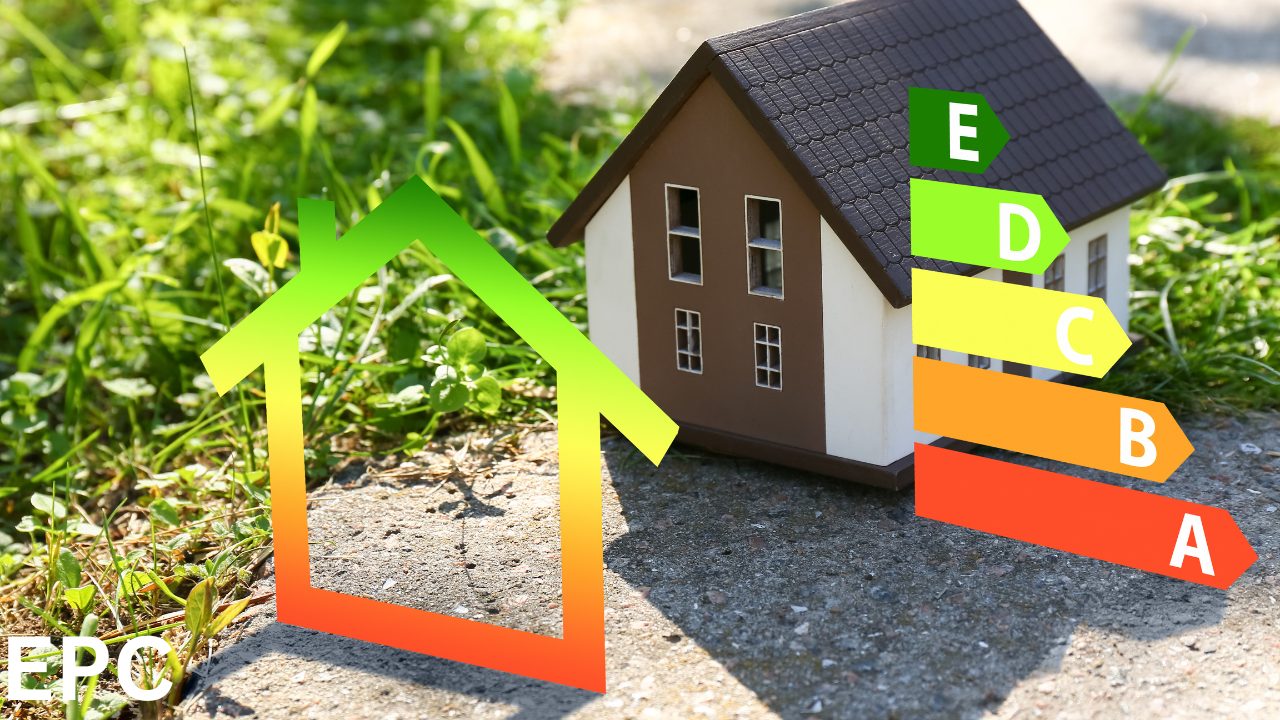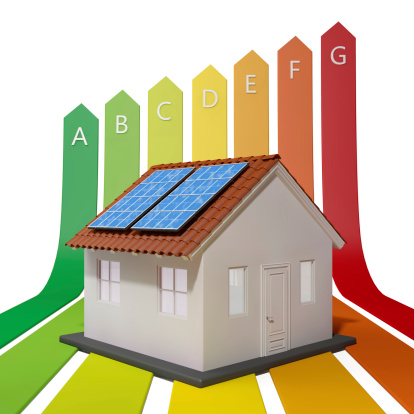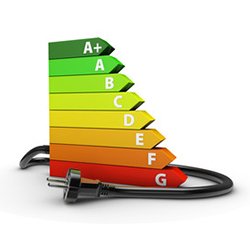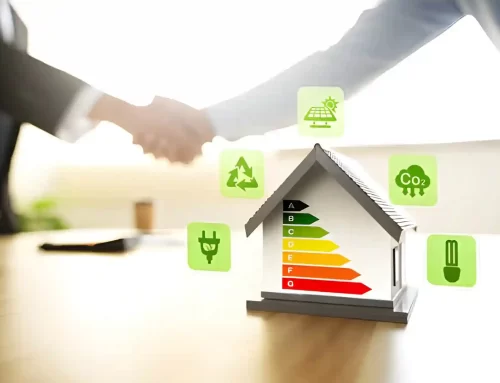
Have you ever wondered how your home’s energy efficiency stacks up? In the UK, this is gauged by the Energy Performance Certificate (EPC) rating, ranging from A, which is the most efficient, to G, the least. This rating not only influences your property’s market value but also impacts your energy bills and carbon footprint. If you’re considering selling or renting your property, you’ll need to be aware of your EPC rating—it’s mandatory. But beyond just a legal requirement, understanding the nuances of this rating could greatly benefit you. What might you discover about your property, and how could this knowledge shift your energy habits, Let’s understand What Is the Energy Performance Certificate Rating UK.
Understanding Energy Performance Certificates
An Energy Performance Certificate (EPC) assesses a property’s energy efficiency, ranging from A (most efficient) to G (least efficient).
It’s crucial to dispel common EPC misconceptions that may cloud your understanding. Firstly, an EPC isn’t merely an optional document; it’s a legal requirement for selling or renting properties in the UK.

Secondly, don’t confuse the EPC rating with the property’s physical condition; it solely reflects energy consumption and potential savings.
Regarding certificate validity, an EPC remains valid for ten years. However, it would help if you considered updating it after significant energy-related renovations to ensure it accurately reflects the property’s current efficiency status.
Understanding these aspects empowers you to utilize the EPC as an insightful tool in property transactions.
Importance of EPC Ratings
Understanding the importance of EPC ratings is crucial when you’re considering buying or renting a property.
These ratings not only reflect the energy efficiency of a property but also profoundly influence your energy costs and environmental impact. A higher EPC rating implies a more energy-efficient home, which translates into lower utility bills and reduced carbon emissions.
This EPC significance can also affect property value, with more efficient homes often commanding a higher market price.
Moreover, understanding the rating implications helps you gauge potential upgrades that could enhance a property’s energy performance.
Thus, it’s not just about compliance or saving money; it’s about making informed, sustainable choices that align with your long-term living comfort and financial planning.
How EPC Ratings Are Calculated
Knowing the significance of EPC ratings naturally leads to curiosity about how these ratings are determined. The calculation involves analyzing various factors that influence your property’s energy efficiency. These factors are meticulously assessed using specific EPC calculation methods to ensure accuracy and reliability.
Here’s a concise breakdown of the primary components:
| Factor | Description |
|---|---|
| Building Characteristics | Size, age, and construction type. |
| Heating Systems | Types of boilers, heaters, and their efficiency. |
| Insulation Levels | Thickness and type of insulation in walls and roofs. |
| Renewable Energy Sources | Presence of solar panels, wind turbines, etc. |
Understanding these components helps in predicting how energy is consumed and gives a clearer picture of where improvements are needed.
Categories of EPC Ratings
EPC ratings in the UK are classified into seven distinct categories, ranging from A to G, with A representing the most energy-efficient homes and G indicating the least.
Each category reflects specific energy efficiency classifications that are crucial for you to understand as a homeowner or buyer. Categories A and B are rare and denote exceptionally low energy costs and minimal carbon emissions.
Homes rated C and D are more common, offering moderate energy efficiency that benefits from potential upgrades.
E, F, and G are at the lower end of the spectrum, where significant improvements are often necessary to enhance performance.
You’ll find homes in these categories typically have higher energy usage and costs, reinforcing the need for informed decisions on energy conservation strategies.
Benefits of a High EPC Rating
A high EPC rating can significantly benefit you as a homeowner or prospective buyer. Primarily, it indicates superior energy efficiency, which not only reduces your utility costs but also enhances your living comfort. Such efficiency stems from well-insulated walls, advanced heating systems, and effective windows, all contributing to a lower carbon footprint.

House Solar Panels
Moreover, properties boasting high EPC ratings often witness an increase in property value. This is due to growing buyer demand for energy-efficient homes, driven by environmental concerns and the prospect of lower long-term costs.
As a result, investing in measures to improve your property’s EPC can yield substantial returns, making your asset more attractive in the competitive real estate market.
Impact of Low EPC Ratings
On the other hand, low EPC ratings can have several negative implications for your property. Your home’s lack of energy efficiency may lead to higher operating costs, directly influencing tenant satisfaction and potentially increasing vacancy rates. This inefficiency often results in greater environmental impact due to higher carbon emissions.
Moreover, properties with poor ratings may see a dip in market demand, affecting your ability to sell or rent swiftly. Expect renovation costs to rise as you’ll likely need substantial upgrades to enhance your property’s energy performance.
| Aspect | Impact of Low EPC Rating |
|---|---|
| Property Value | Potential Decrease |
| Tenant Satisfaction | Likely Reduced |
| Environmental Impact | Increased Carbon Footprint |
Understanding these consequences helps you grasp the full spectrum of owning a less efficient property.
Improving Your EPC Rating
Improving your property’s energy performance certificate (EPC) rating not only enhances its marketability but also reduces operational costs.
To achieve a better EPC rating, consider implementing energy-efficient upgrades such as enhanced insulation, high-efficiency boilers, and double or triple-glazed windows. These modifications can significantly lower heat loss and energy consumption.
Furthermore, integrating renewable energy options, like solar panels or biomass heating systems, can dramatically improve your EPC rating. Such investments not only boost the energy efficiency of your property but also attract eco-conscious buyers.
EPCs for Buyers and Sellers
Understanding Energy Performance Certificates (EPCs) is vital for both buyers and sellers in the UK housing market. Here’s what you need to know about EPC implications on the EPC market:
- Sellers: An EPC can boost your home’s marketability. A higher rating may attract buyers looking for energy efficiency.
- Buyers: Reviewing the EPC shows potential future costs. Lower scores could mean higher energy bills.
- Valuation Impact: Properties with better EPC ratings can often command higher prices.
- Negotiation Leverage: EPC details can serve as a bargaining chip during price negotiations.
- Market Trends: Awareness of EPC trends is crucial; they reflect shifting buyer preferences and regulatory environments.
For both parties, understanding these aspects can significantly influence your decisions and strategies in property transactions.
Legal Requirements for EPCs
In the UK, you’re legally required to have an Energy Performance Certificate (EPC) for your property before selling or renting it out.
This mandate is part of the broader EPC legalities aimed at improving energy efficiency and informing potential buyers or tenants about a property’s energy performance.

Compliance obligations dictate that the EPC must be obtained from an accredited assessor and made available to prospective buyers or tenants at the earliest opportunity, ideally when the property is first listed on the market.
Failure to comply can result in fines.
You must ensure your EPC is valid (the last 10 years) to meet these legal standards.
This proactive approach not only meets legal requirements but also enhances property appeal and marketability.
Future of EPC Ratings in the UK
The UK’s approach to Energy Performance Certificate (EPC) ratings is poised for significant evolution as government policies and building technologies advance.
As you navigate these changes, understanding the future trends and regulatory changes is crucial. Here’s what you can expect:
- Increased Stringency: Expect tighter regulations aimed at improving building efficiency.
- Technological Integration: Advanced tech will likely influence EPC assessments and outcomes.
- Renewable Energy Focus: More emphasis on incorporating renewable energy sources in evaluations.
- Policy Incentives: Potential for more incentives to encourage higher EPC ratings.
- Public Awareness Campaigns: Enhanced efforts to educate on the importance and benefits of higher EPC ratings.
Stay informed and proactive to adapt smoothly to these forthcoming shifts.
Conclusion
As you consider buying or selling property in the UK, remember the significance of the Energy Performance Certificate (EPC). Not only does a high EPC rating enhance property value and market appeal, but it also points to lower energy costs and a reduced environmental impact. Ensure you’re compliant with legal requirements and consider investing in improvements to boost your property’s rating. Staying informed about EPCs can significantly benefit your financial and environmental decisions in the evolving UK housing market.
About the Author: LandlordCertificate
Related Posts
Get Social
Recent Posts
- Fire Safety Certificate London: Integrating Fire Alarms and Emergency Lighting
- Gas Safety Certificate for New Tenancies: Timing and Tenant Handover Tips
- Why Every London Landlord Should Have a Valid Portable Appliance Testing Certificate
- Professional Fire Alarm Installation London: What You Need to Know Before Booking
- How to Obtain a Fire Risk Assessment Certificate for Your Buildings













